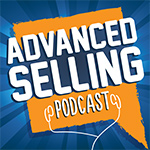Calling the game is a strategy that you use when there is something going on in the sales process that could qualify as a ‘game’ being played by the prospect.
It typically happens when they begin to see you as a ‘salesperson’ who is interested only in getting the sale. In essence, many times when a game is occurring, it is actually you that caused it, especially if you have noticed yourself launching into pressure tactics and amateur salesmanship.
But…
Calling the game is difficult. It requires you to a) know when it’s happening (when every bone in your body might be telling you to ignore it, b) keep them OK while addressing it (while keeping yourself OK with addressing it), and c) address it straight on.
This post will give you practice at calling the game. Now, one note: the intent of this is not to imply that people play tricks on you—or are out to get you. It is human nature that people play games when there is pressure in the relationship–or when they are Not OK for some reason. Don’t think of ‘calling the game’ as something to “do to” someone else. Think of it was a way to create more honest, meaningful dialogue with your prospect.
Most Common Games
1. Not Being Honest. This happens everyday. It has its source usually in some kind of lack of trust (or lack of apparent pain). It happens when you know there are problems, yet your prospect refuses to share them with you. You asking more questions won’t help. They’ll continue to lie. It has a couple of face; “Aren’t I Cool?” “You’re Just A Salesperson” and “Your Competitor Is Really Good.” All of these have at their root a need to feel OK.
2. Withholding Information. “If I told you that I’d have to kill you.” People get freaked out when asked for information. Yet, you, as a problem finder and solver, need certain information to know what the diagnosis should be. This usually happens because of lack of trust, they don’t know what you’re going to do with it (afraid it may come back to bite them), or they don’t know (and they might be embarrassed about that).
3. Not Taking Action. This occurs after you’ve been through the sales process and they still aren’t taking action. They continue to give you stalls and objections far after they should. The game here is “Postpone the solution.” Or “Hope the problem goes away.”
How To Call The Game
Here are some tips on calling the game.
1. Decide that it’s in their best interest if you call it. In other words, call it from a place of high intent, without trying to catch them (don’t play “Gotchya!” with them. That’s a game sales people play.
2. Make the message neutral. Two ways to do that. 1) Use “I” messages. “I’m feeling like..” or “I must have said something earlier that caused us to get here.” Or 2) use neutral language as if you and he are looking down at these two people: “Here’s where we are right now.” Or, “Here’s what I think might be happening.” Or, “As I look at where we are right now, I observe that we……”
3. Ask if they’re feeling it too. This might be tough, because they might lie again and say ‘no, not feeling it.’ Pick your spots when you use this. This is truly a bonding experience though if they are feeling pressure and they are free to admit it. You can also say ‘you may not be feeling this’ or ‘you may not have the same impression.’
4. Deliver the call. Say what it is you’re going to say. Don’t make it long and drawn out. Don’t get verbose and say “do you know what I mean?” or “Do you know what I’m trying to say?” Just say it and leave it be.
5. Ask for help. After you’ve said your piece, ask them if they have any ideas on how we might continue. What they say here will go a long way toward knowing if this is a person you can trust to get out of the game.
6. You can always leave. In our philosophy of selling, you have to deliver optimum value to clients. That’s what this is about. If a prospect lies to you, how can you possible deliver your highest and best value? That’s why ‘calling the game’ always has an option of ‘you can leave.’
 It’s a two-part question Mailbag Monday at The Advanced Selling Podcast.
It’s a two-part question Mailbag Monday at The Advanced Selling Podcast.